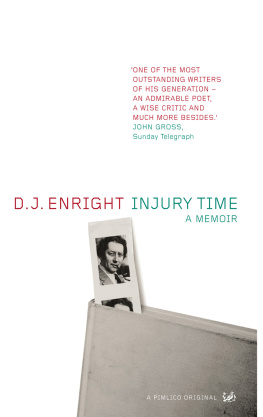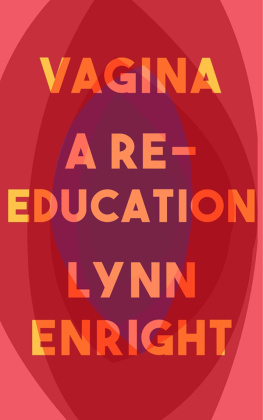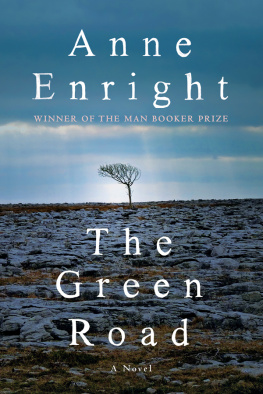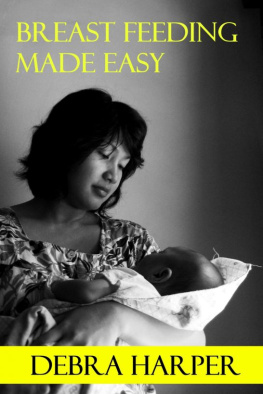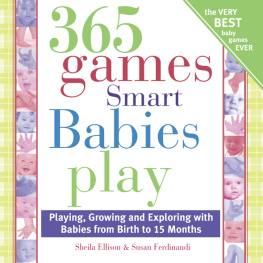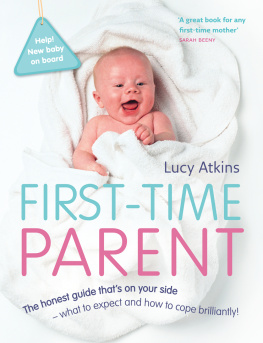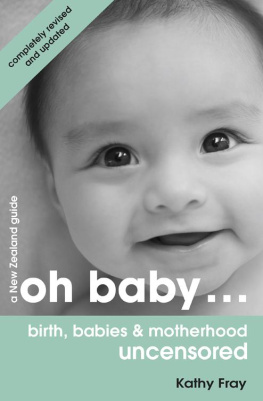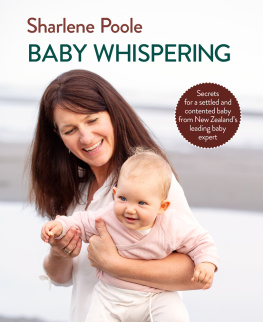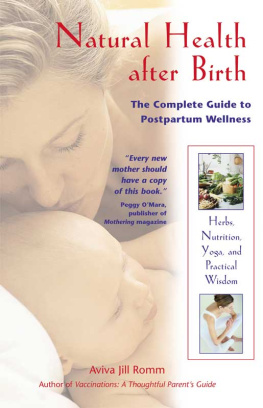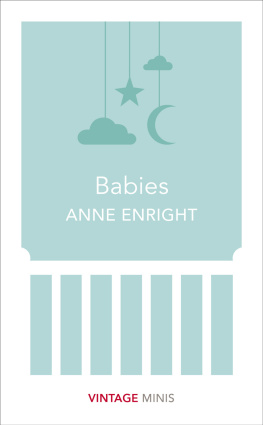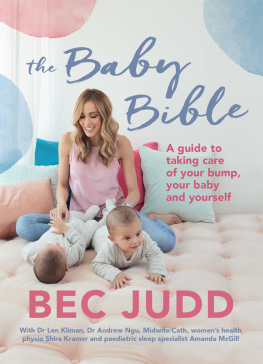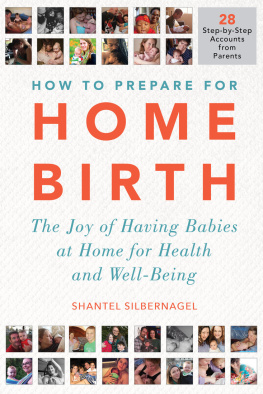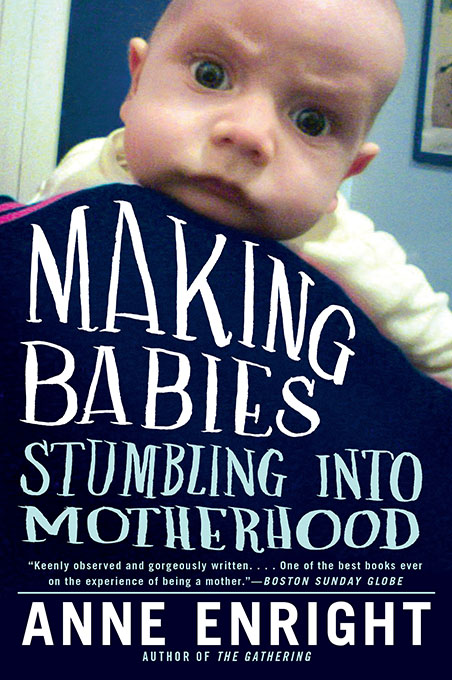
By the same author
F ICTION
The Portable Virgin
The Wig My Father Wore
What Are You Like?
The Pleasure of Eliza Lynch
The Gathering
Yesterdays Weather
The Forgotten Waltz
A NTHOLOGY
The Granta Book of the Irish Short Story (editor)
Making Babies
Stumbling into Motherhood
Anne Enright

W. W. NORTON & COMPANY
NEW YORK LONDON
Contents
Apologies All Round
S peech is a selfish act, and mothers should probably remain silent. When one of these essays, about pregnancy, appeared in the Guardian magazine there was a ferocious response on the letters page. Who does she think she is? and Why should we be obliged to read about her insides? and Shouldnt she be writing about the sorrow of miscarriage instead?
So Id like to say sorry to everyone in advance. Sorry. Sorry. Sorry. Sorry.
Id like to apologise to all those people who find the whole idea of talking about things as opposed to just getting on with them mildly indecent, or provoking I do know what they mean. Also to those who like to read about the dreadful things that happen to other people, when nothing particularly dreadful has happened to me, or my children, so far, touch wood, Deo gratias . Also to those readers who would prefer me not to think so much (because mothers just shouldnt), and to those thinkers who will realise that in the last few years I have not had time to research, or check a reference the only books I have finished, since I had children, being the ones I wrote myself (not quite true, but its a nice thing to say). And, of course, people who dont have children are just as good and fine and real as those who do, I would hate to imply otherwise. Also, sorry about my insides: I was reared with the idea that, for a woman, anatomy is destiny, so I have always paid close attention to what the body is and what it actually does. Call it a hobby.
M ARRIED W OMAN H AS C HILDREN IN THE S UBURBS its not exactly a call to arms, and I do genuinely apologise for being so ordinary, in the worst sense. Here I am, all fortunate, living a 1950s ideal of baby powder and burps, except that, in the twenty-first century we know that talc is linked, bizarrely, to ovarian cancer, so there is no baby powder in this house, and we also know that the hand that rocks the cradle also pays for the cradle, or a fair amount of it, and that, for many people, babies are a luxury that they cannot yet afford. But even for the twenty-first century I am doing well: I have flexible working hours, no commuting, I have a partner who took six weeks off for the birth of his first baby and three months for the second (unpaid, unpaid, unpaid). He also does the breakfasts. And the baths. So you might well say, Oh, its all right for her, as I do when I read women writing about the problems they have with their nannies or other domestic staff. More usually, though, when I read women writing about having children, it is not their circumstances that annoy me so much as their tone. I think, What a wretch, would someone please call the social services. It is the way they are both smug and astonished. It is the way we think we have done something amazing, when we have done no more than most other people on the planet except we, in our over-educated way, have to brag about it.
Most of these pieces were started after my first child, a daughter, was born. I played around with them in the two years before I became pregnant again, and they were finished soon after the birth of my son, so though the baby is a she, both children are in there, somewhere. The reason I kept writing about my babies, even when they were asleep in the room, was that I could not think about anything else. This might account for any wildness of tone. The pieces were typed fast. They were written to the sound of a babys sleeping breath. Some were assembled, later, from notes, but I have tried to keep the flavour of the original scraps. This applies to all except the essay about UFOs (which was written before I ever got pregnant), and I do really apologise for writing about aliens and God and mortality when I should be talking dimple, gurgle, puke-down-the-back-of-my-Armani-jacket, but I wanted to say something about the anxiety of reproduction, the oddness of it, and how it feels like dying, pulled inside out.
Anyway, these are the material facts (for which I also apologise). I met my husband, Martin, a long time ago, we married I cant remember when, and after eighteen years of this and that we knuckled down to having children. It was not an impulse decision.
After our first child was born I worked while she slept, for the first year, and also in the evenings when her father came home. When she was one, she went to a nursery for (count them) six and a half hours per day, three of which were spent having a nap. When she was two and a half, she got a baby brother, and I worked while he slept. And so on. I would really like a rest, now.
Finally, and quietly, I have to apologise to my family and hope that they will forgive me for loving them in this formal, public, plundering way. Starting with my own mother whose voice comes through my own, from time to time and working down the generations. Like all women who write about their children, I have a wonderful partner except in my case it is true. I also have to apologise to my children for writing about their baby selves; either too much, or not enough, or whatever changing way this book takes them, over the years.
My only excuse is that I think it is important. I wanted to say what it was like.
Breeding
G rowing up in Ireland, we didnt need aliens we already had a race of higher beings to gaze deep into our eyes and force us to have babies against our will: we called them priests. It is great being Catholic. A loopy Protestant, on the other hand, has to make it up as she goes along. And no one makes it up better than your American Protestant, driven mad by all that sky. In the 1980s, while we were fighting for contraception and abortion, they were fighting for the future of the human race. I am talking about those people who are forced to carry alien foetuses against their knowledge or will. In 1994 it was said that the alien breeding programme had already affected up to two million carefully selected Americans. What I want to know is who was counting? How do you get on this programme? And why do you have to be white to qualify?
Not that I am smug about being Irish, Catholic and obliged to give birth in a field personally I would rather see a flying saucer than a vision of the Virgin Mary, I think it would be less frightening. The alien breeding programme that leaves strange bruises around the genitals of middle America, though spooky, may just have been preferable to the vicious fight in Ireland over who owns your insides. Get your rosaries off our ovaries, was the battle cry as we voted, over and over, for or against abortion, while the pro-life louts hung around the Dublin streets with their short hair and jars full of dead baby. I used to live in the centre of town and passed them on my way to the shops, waving their grim placards. Instead of spitting or shouting, I would amuse myself by imagining shafts of light with small putty-coloured creatures floating in them; creatures with rubbery fingers and blank, shiny eyes. Because nothing looks more like a foetus, of course, than your average small grey from beyond the Horsehead Nebula.
Never mind the folk legends, the National Enquirer , or trash paranoia on the Internet, for easy reference aliens in America can be sorted into two types boys aliens and girls aliens. The boys aliens are the ones that everyone knows about. They fly around the place in different-shaped craft, many of which could turn on a dime. They come from big mother ships that are so big you just couldnt say how big they are. These craft appear over long roads and in big skies; they glow strangely and dont do a lot a few scorch marks in the grass, a crop circle, some mutilated cattle. The CIA know all about boys aliens, the radar blips and the pilots black box, because boys can not only verify their aliens scientifically, they also suspect other boys of conspiring to cover this proof up.
Next page

